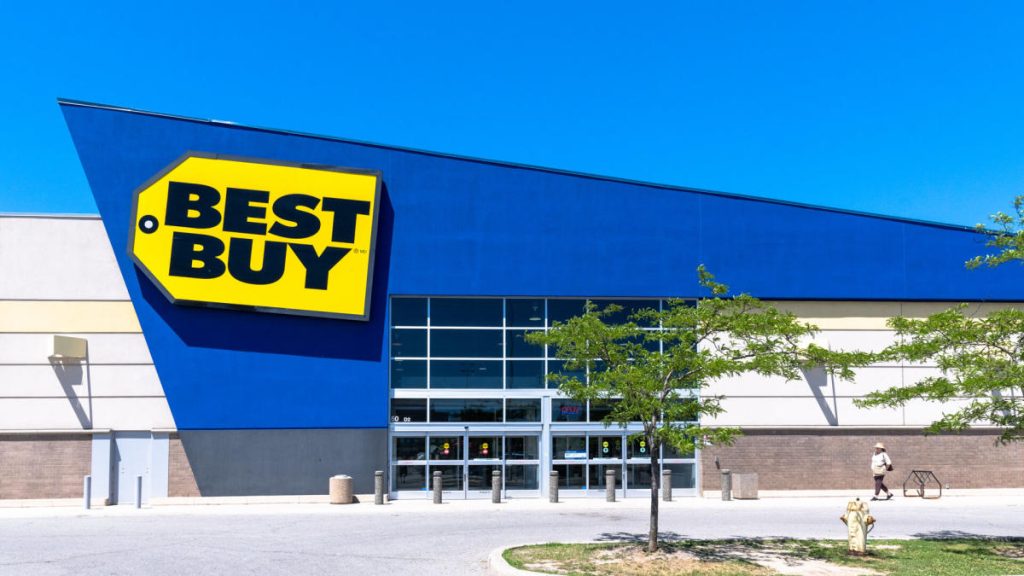
To call the stock market “volatile” over the past two months would be an understatement. Still, volatility sometimes creates buying opportunities. Best Buy (BBY) stock has fallen roughly 37% in the past six months, and most of that came in the past six weeks.
Be Aware: Trump Isn’t Ruling Out a Recession This Year — What Could That Mean for Your Wallet?
Check Out: These 10 Used Cars Will Last Longer Than an Average New Vehicle
If you’ve been considering buying Best Buy stock, does now offer a good opportunity to buy? Here’s what stock experts have to say about buying this stock amid the tariff drama.
At its current price ($61.23 as of April 17), Best Buy could be underpriced.
“The stock is currently trading below its fair value,” said John Murillo, chief dealing officer of B2BROKER. “While there is a potential upside if and when the sentiment towards the tariff talks improves, it’s not immediate or guaranteed.”
The consensus on stock analysis platform Zacks agrees, with an average brokerage recommendation of 2.17 (out of five, with five representing a “Strong Sell” recommendation). Best Buy also has a low price-to-earnings ratio of just 9.35, according to Morningstar.
Murillo cautioned, however, that Best Buy remains extremely exposed to tariffs on Chinese imports. “Let’s not forget that the biggest U.S. electronics and home appliances retailer was punished for a reason — namely, tariffs. Best Buy faces harsh headwinds since most of its retail items are imported from China,” he said.
That said, it remains to be seen exactly how those tariffs will unfold. Javier Palomarez, CEO of the U.S. Hispanic Business Council, pointed out just how quickly the tariff rules keep changing. “While Best Buy was initially impacted by the extreme tariffs on China, we have since seen various exemptions for smartphones and other electronics,” he said.
Just beware that trying to predict the final tariff tally remains pure speculation at this point.
Electronics retailers like Best Buy are vulnerable to recessions. And the risk of recession looks awfully high right now, with J.P. Morgan forecasting it at 60%, per Reuters.
“Though initially driven by speculation, Best Buy’s stock dip could be worsened by the development of a recession,” Palomarez said.
Even before all the talk of tariffs and heightened recession risk, Best Buy hadn’t exactly impressed with its performance. “Best Buy has been lagging behind investors’ expectations for many quarters in a row,” Murillo said. “Their fiscal year 2024 sales came in at $13.9 billion, posting a drop of 5%.”


